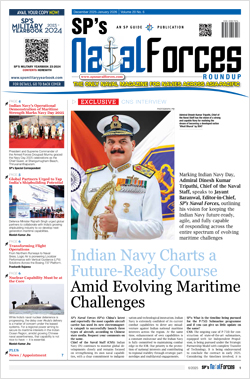INDIAN ARMED FORCES CHIEFS ON OUR RELENTLESS AND FOCUSED PUBLISHING EFFORTS

The insightful articles, inspiring narrations and analytical perspectives presented by the Editorial Team, establish an alluring connect with the reader. My compliments and best wishes to SP Guide Publications.

"Over the past 60 years, the growth of SP Guide Publications has mirrored the rising stature of Indian Navy. Its well-researched and informative magazines on Defence and Aerospace sector have served to shape an educated opinion of our military personnel, policy makers and the public alike. I wish SP's Publication team continued success, fair winds and following seas in all future endeavour!"

Since, its inception in 1964, SP Guide Publications has consistently demonstrated commitment to high-quality journalism in the aerospace and defence sectors, earning a well-deserved reputation as Asia's largest media house in this domain. I wish SP Guide Publications continued success in its pursuit of excellence.
- Global Partners Urged to Tap India's Shipbuilding Potential: Rajnath Singh at Samudra Utkarsh
- All about HAMMER Smart Precision Guided Weapon in India — “BEL-Safran Collaboration”
- India, Germany deepen defence ties as High Defence Committee charts ambitious plan
- G20 Summit: A Sign of Global Fracture
- True strategic autonomy will come only when our code is as indigenous as our hardware: Rajnath Singh
- India–Israel Joint Working Group Meeting on defence cooperation to boost technology sharing and co-development
Global Groupings and Groupism
The UNSC has remained in a limbo since the 2003 Iraq invasion, divisions have further sharpened since the Ukraine war, the G7 has seen its fortunes and influence dwindle giving way to a more credible G20 and now BRICS is steadily gathering winds in its sails with over 40 per cent of the world's population and rich resource and manufacturing base
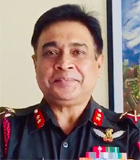 |
The Author is former Chief of Staff of a frontline Corps in the North East and a former helicopter pilot. He earlier headed the China & neighbourhood desk at the Defence Intelligence Agency. He retired in July 2020 and held the appointment of Addl DG Information Systems at Army HQ. |
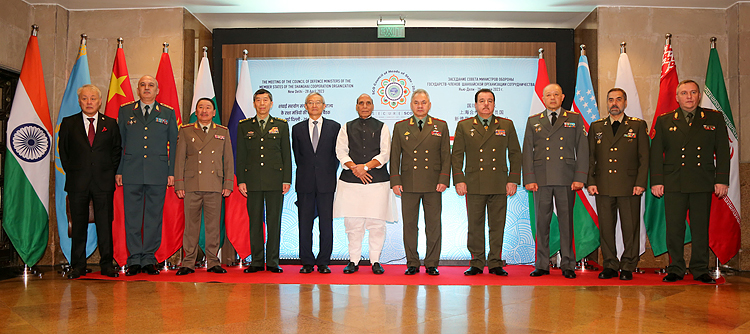
The Goa conclave of the SCO threw up great optics. The subtleties of Namaskars and warm shake hands, of hugs and cold shoulders gave enough fodder for the media, national and global, to second-guess the evolving churn in international relations. It was but natural, that Pakistan Foreign Minister Bilawal Bhutto's attendance should have become a spectacle in the subcontinent, especially on both sides of the divide.
The year puts Indian diplomacy to severe tests. It holds the G20 Presidency and the rotational Chairmanship of the Shanghai Cooperation Organisation (SCO). This apart, barely three weeks after the Goa FMs conclave, Prime Minister Narendra Modi will be departing to attend the third in-person QUAD leaders' summit, which is this time being hosted by Australia on May 24 in Sydney. As much as NATO keeps reiterating that it is not an anti-Russian grouping, the QUAD formulation also reiterates ad nauseam that it is not anti-China.
The deep state in the US continues to back the Pakistani deep state for its purported usefulness in tackling Afghanistan and elsewhere and China will continue to exploit Pakistan to the hilt in checkmating India in the region
Let's recall the stated purpose of the SCO. It is an intergovernmental organisation to maintain stability across the Eurasian region, join forces to counteract emerging challenges and threats and enhance trade and cultural and humanitarian cooperation. The focus of the Goa meeting was to be deliberations on the approval status of decisions to be made at the summit in July this year. However, the killing of five soldiers in the Kandi area of Rajouri on May 5 in an encounter with the terrorists who had attacked an army vehicle and killed five soldiers on April 20 in the same belt, altered the headlines. This eerily reminds of a similar incident in December 2015, when it was hoped that a new chapter of friendly ties between India and Pakistan might open with the Indian Prime Minister Narendra Modi visited Lahore, to meet his Pakistani counterpart Nawaz Sharif. Things turned sour with terror attack on Indian Air Force Station in Pathankot. The reader needs no reminder about the Kargil incursions after Prime Minister Vajpayee's peace overture bus trip to Lahore in 1999.
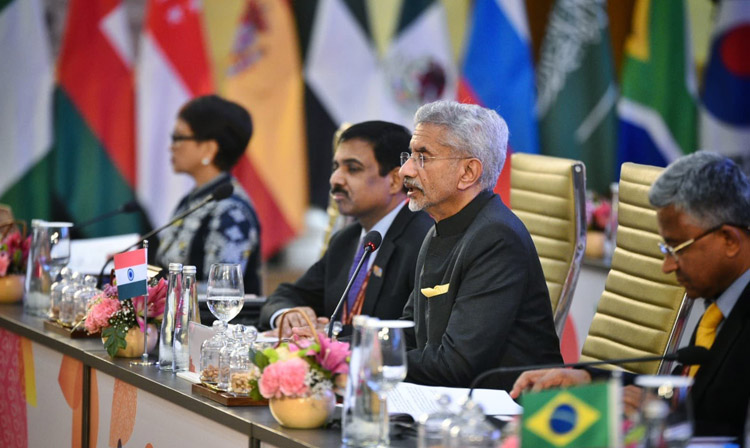
The Rajouri incident serves Pakistan deep state well in reinforcing its nuisance value even as it is economically on the verge of bankruptcy. It has backers inimical to India's interests. The deep state in the US continues to back the Pakistani deep state for its purported usefulness in tackling Afghanistan and elsewhere, their agencies coordinating efforts and agendas. China will continue to exploit Pakistan to the hilt in checkmating India in the region. The China Pakistan Economic Corridor (CPEC) is being expanded to Afghanistan as a concept at least. However, the current internal violence and chaos in Pakistan after arrest of former Prime Minister Imran Khan on May 9 will put Beijing on severe test too.
The biggest challenge facing the world today remains terrorism in its myriad hues, across ungoverned or poorly governed geographical expanses some of which are resource rich
Of course, the biggest challenge facing the world today remains terrorism in its myriad hues, across ungoverned or poorly governed geographical expanses some of which are resource rich. Most of these spaces have been carved out by a combination of the Global War on Terror (GWOT) launched by the US after the 9/11 Twin Tower attack and some by the overt/covert operations it has undertaken or backed since then in pursuance of its own hegemonic interests. These include the Iraq offensive of 2003 on the false pretext of the country stockpiling WMDs which unravelled a complex multi-ethnic, multi-religious and multi-sectarian nation, kept under a tight leash by the dictatorial regime of Saddam Hussein. The region is since in disarray, having given birth to a far more virulent ISIS that briefly held sway over a large territory covering Northern Iraq, North East Syria and parts of Southern Turkey. Syria itself hurtled to anarchy after a 2011 uprising in the sweep of the Arab Spring, suspected to be inspired or backed by the US. One major beneficiary of these misadventures has been Iran which has been able to connect seamlessly with armed groupings like Hezbollah in Lebanon and Hamas in Gaza to further destabilise formal governing dispensations in the region.
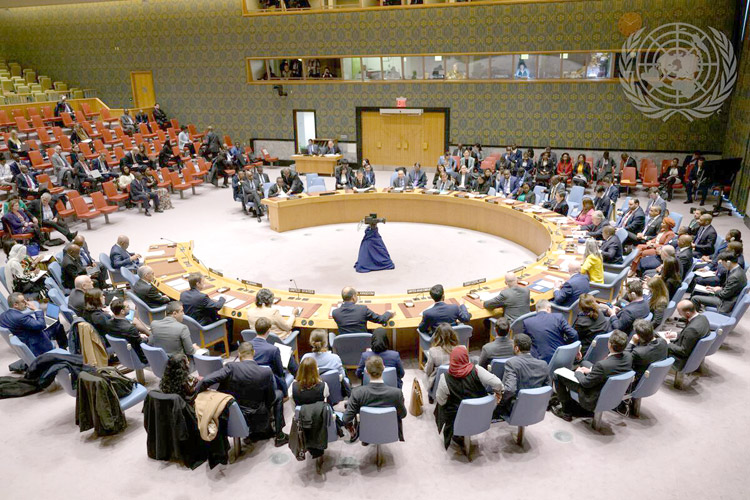
Another oil rich nation, Libya's fault lines surfaced as local groups took different positions in the 2011 NATO-backed uprising that toppled Moammar Gadhafi. An attempted democratic transition slid out of control as armed groups built local power bases and coalesced around rival political factions, seizing control of economic assets. It has emerged as another fertile ground for oil loot and sleaze, teeming with lethal arms and destabilising the entire Northern Africa.
China's military and economic rise has brought Delhi closer to Washington but at the same time, China-U.S. competition and the deterioration of Russia-US relations have brought Beijing and Moscow into a closer strategic embrace
The powers that initiated these regimes change interventions found themselves outmanoeuvred by the very armed grouping they mentored and nourished for their narrow purposes. Taliban in Afghanistan is a stark example. These regions have become breeding grounds for even more radical armed groupings to emerge. The social media is being skilfully used, backed by drug and oil money, to recruit jobless and vulnerable youngsters from the ghettos of Asia and Europe, the latter from the crowded neighbourhoods that house the millions of refugees from Iraq-Syria-Afghanistan region that flooded Europe in 2013 and thereafter. There is a humongous number of lethal arms and munitions in the grey markets flooded by diversions from abandoned missions like Afghanistan and Iraq or poorly monitored undertakings like the west's generous support to Ukraine.
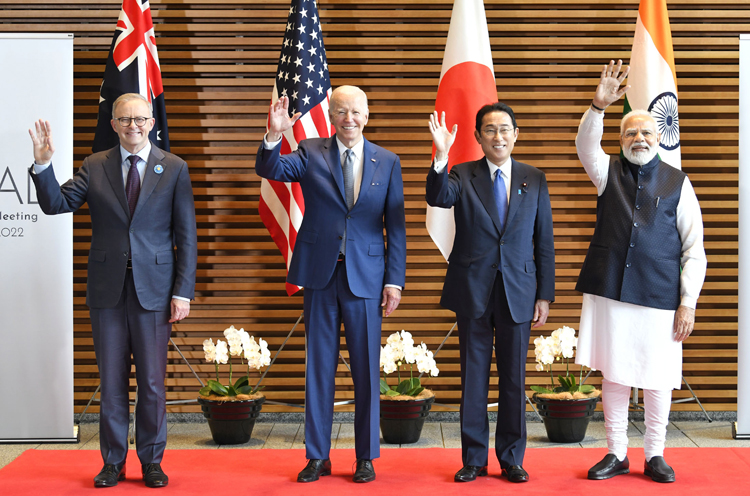
In such a terrible flux, the UNSC has remained more or less in a limbo since the 2003 Iraq invasion, divisions further sharpened since the Ukraine war. The G7 has seen its fortunes and influence dwindle as it loses economic heft combined with demographic downturns, giving way to a more credible G20. And an even more potent formulation that has been steadily gathering winds in its sails is the BRICS which combines emerging economies with over 40 per cent of the world's population and rich resource and manufacturing base.
How is India navigating these uncertainties? China's military and economic rise has brought Delhi closer to Washington and its allies in the form of a more vigorous engagement in the QUAD. At the same time, China-U.S. competition and the deterioration of Russia-US relations have brought Beijing and Moscow into a closer strategic embrace, putting a big question mark on how much India can manoeuvre in a grouping like the SCO. So, there are contradictions and cross-currents galore. But holding contrasting directions and still finding the dexterity to operate and move in order to protect and promote India's national interests should be the cornerstone of Indian diplomacy.





